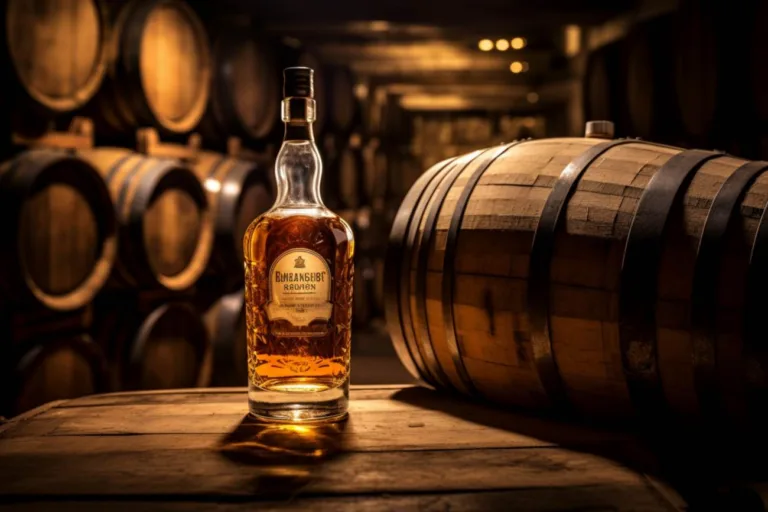Welcome to the world of Tennessee whisky, where tradition, craftsmanship, and a dash of southern charm converge to create some of the finest spirits on the planet. In this article, we’ll delve into the history, production, and unique qualities of Tennessee whisky, all while celebrating the rich heritage that defines this beloved libation.
The origins of tennessee whisky
The story of Tennessee whisky begins in the late 18th century, when settlers in the region began to distill spirits from the plentiful corn crops that grew in the area. This marked the birth of a tradition that would eventually lead to the creation of world-renowned brands like Jack Daniel’s and George Dickel.
The most famous of these distilleries, Jack Daniel’s, was established in 1866 by Jasper Newton „Jack“ Daniel. His unique process of filtering the whisky through sugar maple charcoal, known as the Lincoln County Process, became a hallmark of Tennessee whisky production and contributes to its distinctive flavor.
The distillation process
At the heart of Tennessee whisky is the meticulous distillation process that transforms raw ingredients into a smooth, flavorful spirit. Here’s a brief overview of the key steps involved:
- Mash Bill: Tennessee whisky typically uses a mash bill that includes corn as the primary grain, complemented by malted barley and rye. The specific ratio of grains varies among distilleries, lending each whisky its unique character.
- Fermentation: The mash is fermented using yeast, converting the sugars into alcohol. This process can take several days and contributes to the whisky’s flavor profile.
- Distillation: The fermented mash is distilled in copper pot stills or column stills to increase alcohol content and remove impurities.
- Charcoal Filtering: The whisky is then filtered through sugar maple charcoal, a step that imparts smoothness and mellowness to the spirit.
- Maturation: The whisky is aged in new, charred oak barrels for a minimum of three years, often much longer. This aging process adds depth and complexity to the final product.
- Bottling: Once matured, the whisky is carefully blended and bottled at the desired proof, ready for consumers to enjoy.
Tennessee whisky vs. bourbon
One common question that arises is the difference between Tennessee whisky and bourbon. While both are American whiskies, Tennessee whisky’s distinction lies in the Lincoln County Process, which requires filtration through sugar maple charcoal before aging. This additional step gives Tennessee whisky its smoother and slightly sweeter character compared to bourbon.
Popular tennessee whisky brands
There are several iconic Tennessee whisky brands that have garnered a loyal following over the years:
| Brand | Distillery | Notable Whiskies |
|---|---|---|
| Jack Daniel’s | Jack Daniel’s Distillery | Old No. 7, Single Barrel, Gentleman Jack |
| George Dickel | George Dickel Distillery | No. 8, No. 12, Barrel Select |
Each of these brands has its own unique flavor profiles and offerings, catering to a wide range of preferences among whisky enthusiasts.
FAQs about Tennessee Whisky
Is Tennessee whisky the same as bourbon?
No, Tennessee whisky and bourbon are not the same. While both are American whiskies, Tennessee whisky undergoes an additional filtration process through sugar maple charcoal known as the Lincoln County Process, which sets it apart from bourbon.
What is the significance of the Lincoln County Process?
The Lincoln County Process is a crucial step in Tennessee whisky production. It involves filtering the distilled spirit through sugar maple charcoal before aging, which imparts a smoother and mellower character to the whisky.
What are some popular ways to enjoy Tennessee whisky?
Tennessee whisky can be enjoyed in various ways, including neat, on the rocks, or in classic cocktails like the Old Fashioned and the Whisky Sour. The choice depends on your personal taste and preference.
What makes Tennessee whisky unique?
What sets Tennessee whisky apart is the combination of its mash bill, fermentation process, and the distinctive Lincoln County Process of charcoal filtering. These elements come together to create a uniquely smooth and flavorful spirit with a touch of sweetness.
How should Tennessee whisky be stored?
Tennessee whisky should be stored upright in a cool, dark place, away from direct sunlight and extreme temperature fluctuations. Keeping the bottle sealed and the cork or cap tight will help preserve its quality over time.
Viz také:






